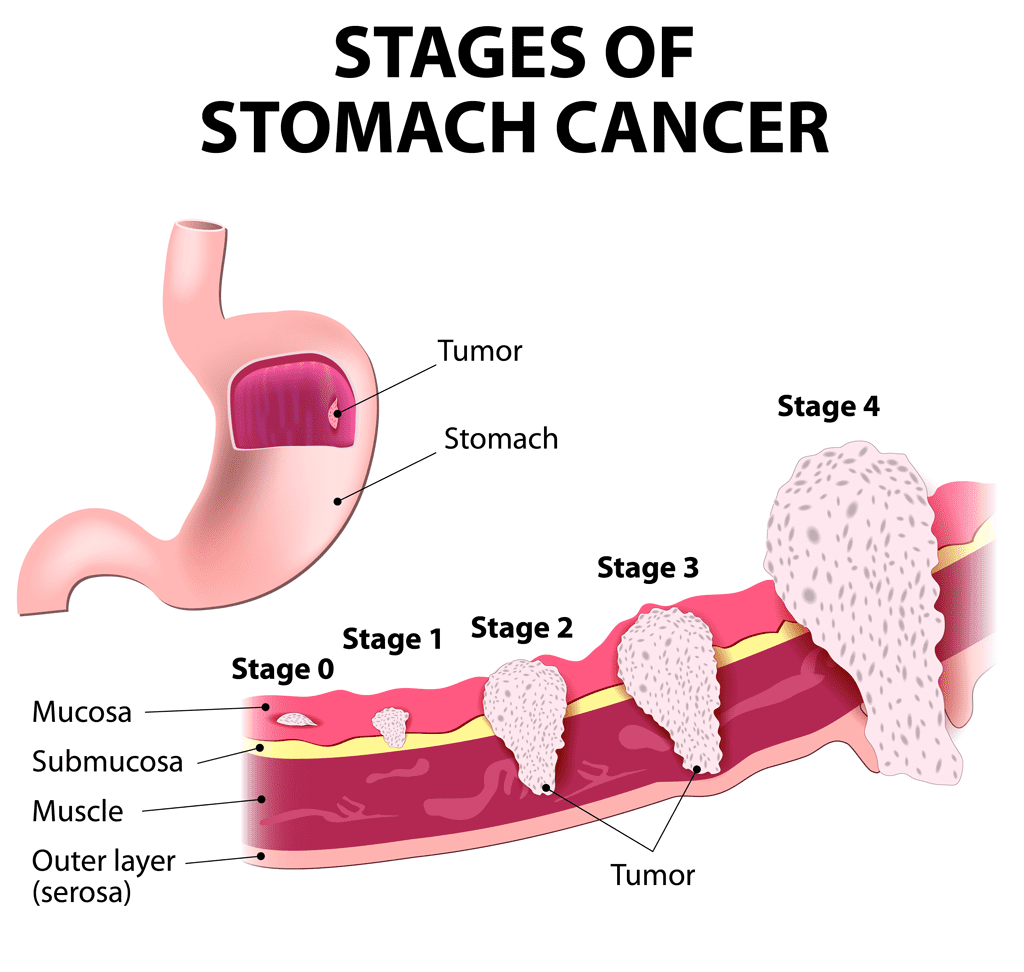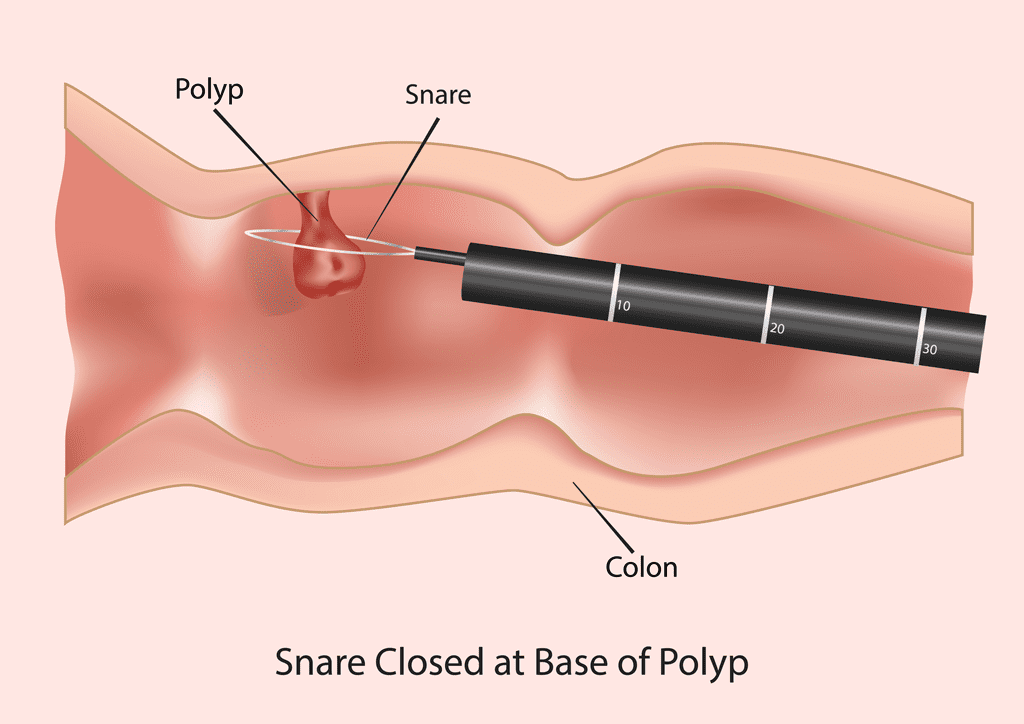What is Endoscopic Mucosal Resection?

Endoscopic Mucosal Resection (EMR) refers to the removal of precancerous, early-stage cancers along the digestive tract. It is performed during gastroscopy or colonoscopy.
Oftentimes, your Gastroenterologist will recommend an EMR if the tumour or lesion is just beneath the surface of the gastrointestinal wall, within the mucosa (the membrane that lines the gut) and is most effective in the removal of large polyps.
There are 3 common EMR techniques:
- Hot-snare EMR (HS-EMR)
- Cold-snare EMR (CS-EMR)
- U-EMR
Both Hot-snare EMR and Cold-Snare EMR involve a saline injection to the removal site, which acts as a cushion for lifting the polyp, separating it from the other tissues. Whereas in a U-EMR, water immersion is used to float the mucosa and submucosa away from the muscularis propria.
What’s the difference between Hot-snare EMR and Cold-snare EMR in Singapore?
Hot-snare EMR involves the use of electrocautery to seal the wound as the lesion is removed, while a Cold-snare EMR does not.
What happens during an Endoscopic Mucosal Resection?

An EMR is typically performed under sedation, and you will be kept as comfortable as possible throughout the procedure.
An endoscope (long, flexible tube with a camera and light) will be guided through the gastrointestinal tract. Saline solution is then injected under the lesion to cushion the area between the growth and the healthy tissue underneath it (muscular layer), while a gentle suction is then used to lift the lesion.
A thin wire rope or snare is fed through the endoscope and looped around the base of or parts of the lesion, depending on its size. For hot snare EMR, an electrical current is passed through the wire, cauterising the wound as it separates the lesion from the surrounding healthy tissue. For cold snare EMR, the snare is simply tightened at the base or parts of the lesion and it is cut off without any electrical current.
The procedure generally lasts an hour, but this may be longer, depending on your condition.
Samples of the tissue are sent to a pathologist, who will then examine the collected tissue samples under a microscope to confirm the nature of the tumour and if the procedure has completely removed the tumour.
Who needs an EMR?
As its name suggests, endoscopic mucosal resection is recommended for tumours located within the mucosa. It is generally recommended for:
- Lesions less than 2 cm in diameter and has not reached deeper layers of the gastrointestinal wall.
- Areas of abnormal lesions or tissues that can be easily separated from surrounding tissues.
It is very important to properly determine whether EMR would be the best option for polyp removal. This is because incomplete polyp removal can make future attempts at EMR more difficult. This means complete removal of the polyp in the first attempt is crucial, and so is getting an experienced Gastroenterologist familiar with these techniques.
How do I prepare for an EMR in Singapore?
As this is a day procedure, you will need to make arrangements to be escorted home, as the sedatives may still be in effect and leave you unsteady on your feet for a while.
Bowel preparation is important. If the procedure is done in the lower GI tract, you will be required to:
- Consume a low residue diet, such as porridge or white rice
- Avoid cereal, nuts or juices with fruit pulp
- Abstain from food 6 hours before, and fluids 2 hours before your procedure
- Clear your bowels with oral laxatives
Is Endoscopic Mucosal Resection a major surgery?
No, it is not. In fact, EMR is a minimally invasive procedure for removing precancerous lesions along the gastrointestinal tract.
Does EMR hurt?
You will not feel pain because you will be sedated throughout the procedure and kept as comfortable as possible.
What to expect post-EMR in Singapore?
After your EMR procedure, you will be asked to rest and will be monitored closely. A sore throat, upset stomach, gas, bloating and cramping are normal and will subside eventually.
Oftentimes, a modified diet is also recommended for the first 3 days. You should feel better after 2 to 3 days and make a full recovery within a week.
Summary
An endoscopic mucosal resection is an effective minimally invasive procedure for removing precancerous and early-stage cancer lesions lining the digestive tract. It has been proven to be a safer alternative to traditional surgery, but is a technically challenging procedure, making it important to find a Gastroenterologist well-versed in these techniques.
1 in every 4 people aged over 50 get colorectal polyps and hence, early screening and early detection is paramount. To schedule a screening, please contact your Gastroenterologist today.
References
- “Endoscopic mucosal resection.” Mayo Clinic, 11 June 2022, https://www.mayoclinic.org/tests-procedures/endoscopic-mucosal-resection/about/pac-20385213. Accessed 21 December 2022.
- “Endoscopic Mucosal Resection (EMR).” GastroMedicine & Endoscopy, https://www.gastromedicine.com.au/endoscopic-mucosal-resection-emr/. Accessed 21 December 2022.
- “Endoscopic mucosal resection (EMR) versus endoscopic submucosal dissection (ESD) for resection of large distal non-pedunculated colorectal adenomas (MATILDA-trial): rationale and design of a multicenter randomized clinical trial.” NCBI, 26 May 2016, https://www.ncbi.nlm.nih.gov/pmc/articles/PMC4882830/. Accessed 21 December 2022.
- “Gastroscopy with Endoscopic Mucosal Resection (EMR) | CUH.” Cambridge University Hospitals, https://www.cuh.nhs.uk/patient-information/gastroscopy-with-endoscopic-mucosal-resection-emr/. Accessed 21 December 2022.
- Tabibian, James H., and Thoguluva Chandrasekar. “Endoscopic Mucosal Resection: Best Practices for Gastrointestinal Endoscopists – Gastroenterology & Hepatology.” Millennium Medical Publishing, https://www.gastroenterologyandhepatology.net/archives/march-2022/endoscopic-mucosal-resection-best-practices-for-gastrointestinal-endoscopists/. Accessed 21 December 2022.

